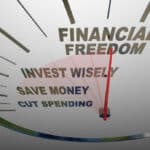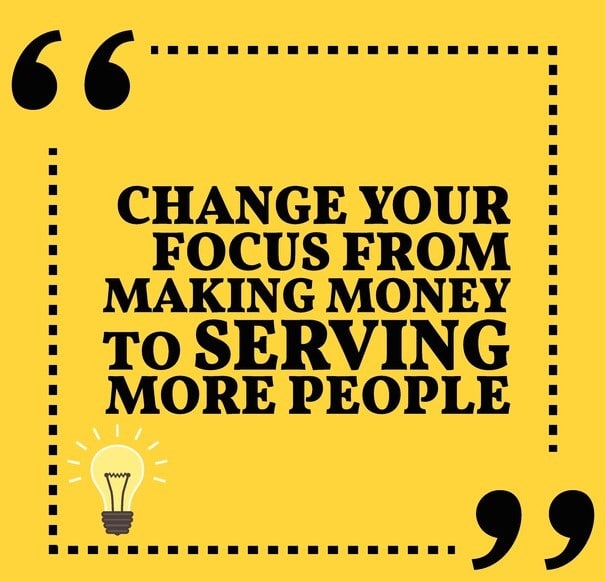Inflation is Out of Control
The Universe is forcing us to re-align our priorities. Firstly global warming hit the headlines with unprecedented bush fires, flooding, and storms happening across the globe. Our lives have been impacted by the worldwide pandemic. Two years of chaos – fear for our health, lifestyle, homes, and jobs kept us on edge as businesses closed down, and money, food, and everything became scarce.
Addiction to Fear
Fear, anxiety, and trauma surround us daily. The ongoing impact of this worldwide trauma will impact our lives for decades to come as inflation becomes rampant. Oil prices have skyrocketed, triggering massive food and commodity price increases and rapid inflation. Mortgage rates have risen for the first time in 12 years. How do we cope?
Go Back to Basics
Right now we all need some financial skills that will help you to cope with our rapidly changing ‘new normal!’ And the key to effectively doing this is prioritisation. Everyone has limited resources, whether time, money, or energy. Right now we are heading into a recession. Inflation is out of control. There are limits to everyone’s time and energy, so it makes sense to focus all your resources on creating financial habits that will help you the most right now. Hate to tell you but this means you MUST have a good look at your and your family’s spending and savings habits. Do you have a savings plan in place or live payday to payday?
Where is Your Financial Pain Point?
Where are you feeling the most pain in your financial life? What keeps you up late at night? Is it the lack of savings? A non-existent emergency fund? Too little income to pay your bills each month? A bleak retirement future?
Addressing the most stressful financial challenge in your life can be an effective place to start. When we are faced with an emergency of our own making or just circumstances is not the time to prepare for it. An emergency fund is a great idea for everyone. Regardless of income levels, when the proverbial ‘shit hits the fan’ we almost always need money. So plan for the unexpected so it will be one less ‘stress’ you have when it happens. If nothing happens, worst-case scenario, you have extra savings.
What’s Your Savings Strategy?
What would have the most significant impact on your finances right now? Knowing that you need to work on your savings doesn’t necessarily highlight the optimal practice to adopt. Consider the impact each potential new strategy would bring to your life.
Design a savings strategy.
My favourite method is having separate accounts for Savings, Living Exps, Monthly Bills, Emergencies, Dreams, and charity.
I budget to transfer a fixed amount into each of these payday accounts. Let me give you an example:
Monthly bills: this includes things like insurances; car registration; mortgage/rent; electricity/gas; health fund; – all those regular bills that come in weekly/monthly/annually that give you financial stress when they arrive.
Electricity/rates : I know approximately what I need to pay each quarter. These Bills come every 13 weeks. I get paid every 2 weeks so I divide what I expect the bill to be by 7. In my case, it is $100 for these two bills. I ADVANCE pay this to Electricity and Mortgage Company. When I receive my bill I am almost always in credit.
Annual Recurring Bills
I do exactly the same for my car rego, + $67/per mth; I can’t pay this one in advance but I can save this money every fortnight into my Monthly Bills account and save it there.
For every regular bill I know I will receive each month/quarter/annual I pre-save the amount I need to pay each payday. Small amounts are easy to save. It also helps you to notice when you overspend on Credit cards and Delayed payment cards.
Saving for Rainy Day Essential
If you do not save for emergencies, sooner or later you will be sorry. This account will reduce stress and peace of mind.
Make a list of all the spending habits you currently have – good and bad habits. Look at all the potential spending that could be handicapping your ability to save. An easy way to do this would be to check if your bank compiles an analysis of your spending. Usually, this is available in a graph form which is quickly built that relates to your target financial concern.
– good and bad habits. Look at all the potential spending that could be handicapping your ability to save. An easy way to do this would be to check if your bank compiles an analysis of your spending. Usually, this is available in a graph form which is quickly built that relates to your target financial concern.
Create a Budget for 12 months
• Prioritize your list based on the likely outcome of incorporating that habit into your life. Eliminate the bottom 80%.
• Reexamine the 20% that remains. Visualise the impact each of the remaining possibilities will have down the road one month, six months, 12 months, and five years. How will the habit impact your life 25 years from now?
• Choose the habit that makes the most sense after carefully considering the future. If you’re torn between 2 or more habits, think about which would be the easiest to implement. Never underestimate the power of momentum. You can swing back around and pick up the other habits in the near future.
Plan Steps to Succeed
Seek to be average at first. Bring all the parts of your finances up to a comfortable level before attempting to become a high achiever. The worst aspects of your financial life are causing your most significant financial discomfort.
In other words, eliminate consumer debt, have an emergency fund, save at least 10% of your income, have adequate insurance, and be consistently saving for retirement before worrying about the purchase of a vacation home or the installation of a swimming pool.
If your habit doesn’t address a fundamental personal finance issue, be sure your target habit is in your best interest.
On a 1 to 10 scale, bring each part of your finances up to a “5” before attempting anything on a grander scale.
30 days to Create a Habit
Do you have what you MUST to put the habit into place? If not, can you get what you need or start small enough that the practice is viable? If you’re 75lbs overweight and spend every evening on the couch, you’d have to start small if your desired habit was to run 10 miles each day. You’d need running shoes, too.
Some financial habits might require you to gain a significant amount of knowledge or have a starting point that is currently beyond your reach.
Determine if the habit is possible with your available resources and expertise. It’s possible another goal might be more appropriate.
Time is a limiting factor for everyone, and there are only so many hours that can be applied to building and performing a new financial habit. Ensure you’re spending your time wisely and effectively. The most important habits are often the least appealing. Focus on positive habits to best enhance your finances.

